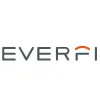Take a look inside 9 images
EVERFI: Financial Literacy for High School
Pros: Relevant activities help students learn basic financial literacy skills, and the activities progress at a reasonable pace.
Cons: Some difficult economic and financial realities that students face aren't taken into account.
Bottom Line: These lessons break free from the one-size-fits-all expectations of other financial literacy tools, and offer a good starting point to get students planning for their future.
Teachers can easily choose and assign EVERFI's online modules for work at home or in the classroom. Whether it's part of a math lesson about money or statistics or part of an SEL lesson about making informed choices and considering consequences, the platform will get students thinking and talking about real-life concerns. Teachers might encourage students to share what they've learned at home, to open up opportunities to connect with grown-ups. By doing this, students can gain context from their parents and caregivers that grounds lessons and makes things less confusing. Of course, teachers should make sure these discussions won't make grown-ups at home feel uncomfortable.
Whether facilitating at-home conversations or not, teachers should consider creating supplemental activities that provide students with more nuance. Students have vastly different experiences and backgrounds, particularly when it comes to economic issues, and lessons might not take their specific experiences or situations into account. Classroom discussions should be treated with care, since they could highlight inequities among students. Teachers will want to be careful about making assumptions about students and be sensitive to the anxieties students might feel financially. On the flip side, students could be encouraged to challenge the lessons, and offer their own alternative perspectives. But with these things in mind, the modules can make complex financial concepts more approachable to high school students, and are well designed for easy implementation.
EVERFI: Financial Literacy for High School is a series of animated online modules that teach students basic money management and financial planning skills. The seven modules include banking basics, income and employment, budgeting, consumer skills, credit and debt, financing higher education, and insurance. Each module takes 20-35 minutes to complete and guides students through a series of questions, activities, informational slides, and quizzes about the given topic. Students may read and/or listen to the text for each slide as they participate in scenarios where they make decisions and learn about their potential positive and negative financial consequences.
Teachers can create classes and add students manually or invite them to join via a class code. Then, teachers assign one or more modules to students, keeping the approximate length of each one in mind. The dashboard provides a way to monitor student progress and see their scores. If they wish, teachers can complete the modules as well, which can be helpful when deciding whether to supplement lessons with additional content or expand upon lessons in class.
In addition to teaching students financial literacy concepts, EVERFI's platform helps students authentically develop SEL skills, such as self-control and self-reflection. Although many of the lessons are geared toward surface-level understanding and tend to gloss over the very real obstacles some students face (as is too often the case with financial literacy curricula), EVERFI is still a good hands-on tool that empowers young adults to practice concrete money management skills. Additionally, the modules, including Spanish-language modules, feature a range of diverse characters and scenarios, and generally avoid the one-size-fits-all expectations for students' lives after high school.
The initial questions and different choices for life paths are a good starting point for students with varying aspirations; however, more personalization would make the tool even more relevant. While it's impossible to account for every scenario, the modules will be too basic for some students, or in some cases, might not adequately reflect their reality. As it is, EVERFI still provides a worthy starting point for teaching the money-management and decision-making skills that will help students plan for their future.



















